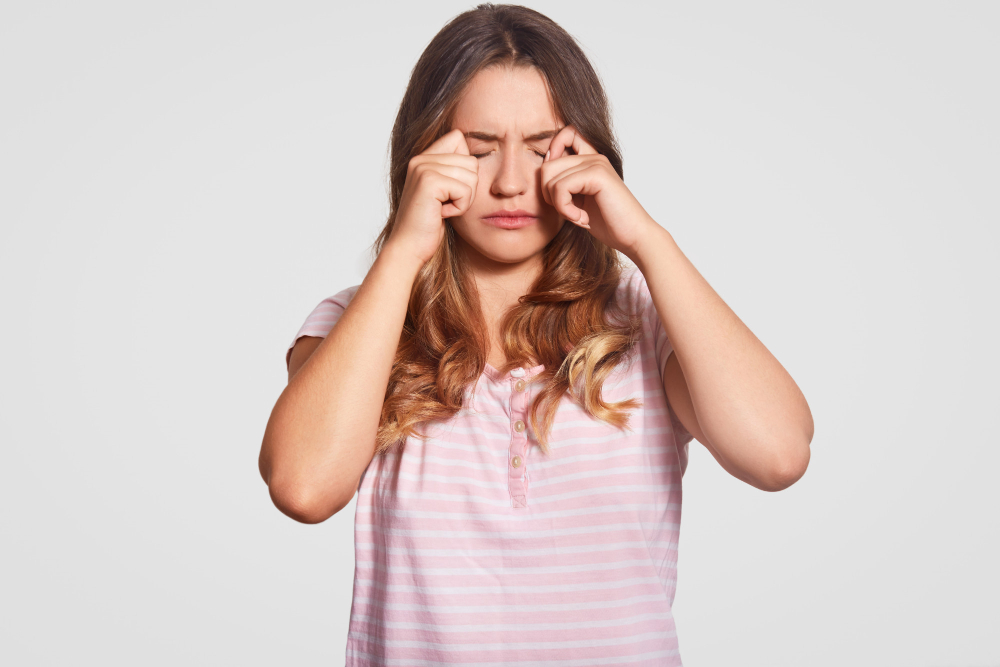What Are Dry Eyes?
Dry eyes, accompanied by symptoms such as itching or a burning sensation, are common complaints experienced by some women during menopause. These discomforts can be attributed to hormonal changes that occur as estrogen levels decline. Estrogen plays a crucial role in regulating tear production and maintaining eye moisture, and its decline can lead to dryness and irritation in the eyes.

What causes Dry Eyes?
Estrogen helps regulate the function of the lacrimal glands, which are responsible for tear production. Tears play a vital role in keeping the eyes lubricated, protecting the ocular surface, and maintaining visual clarity. During menopause, as estrogen levels decrease, the lacrimal glands may produce fewer tears or have an altered tear composition, leading to dryness in the eyes.
In addition to hormonal changes, aging can also impact tear production and eye moisture, making women more susceptible to experiencing dry eyes during menopause.
Environmental factors, such as dry air, wind, or prolonged use of digital screens, can exacerbate the symptoms of dry eyes. Some women may also find that their eyes become more sensitive to certain irritants during menopause, further contributing to dryness and discomfort.


How to fix Dry Eyes
Limit exposure to environmental factors that can worsen dry eyes, such as dry air, wind, smoke, or excessive screen time. Consider using a humidifier to add moisture to the air in your home or office.
Make a conscious effort to blink regularly, especially during activities that require focused visual attention, such as reading or using digital devices. Blinking helps spread tears evenly across the eyes and keeps the ocular surface moist.
Applying a warm compress to closed eyes can help stimulate tear production and soothe dryness.
Incorporating omega-3 fatty acids into your diet, found in foods like salmon, flaxseeds, and walnuts, may promote eye health and reduce dry eye symptoms.
Drink plenty of water to stay hydrated, as proper hydration can also contribute to maintaining eye moisture.
Take breaks during prolonged tasks that require visual focus, such as reading or using a computer. Giving your eyes regular breaks can help reduce strain and dryness.
Protect your eyes from wind and sun by wearing sunglasses when outdoors.
Bioidentical Hormone Replacement Therapy (BHRT) can help balance estrogen levels and may alleviate dry eye symptoms caused by hormonal fluctuations.
Want help with your Dry Eyes?
Click here to learn more about your options with the Healthy Hormone Club

